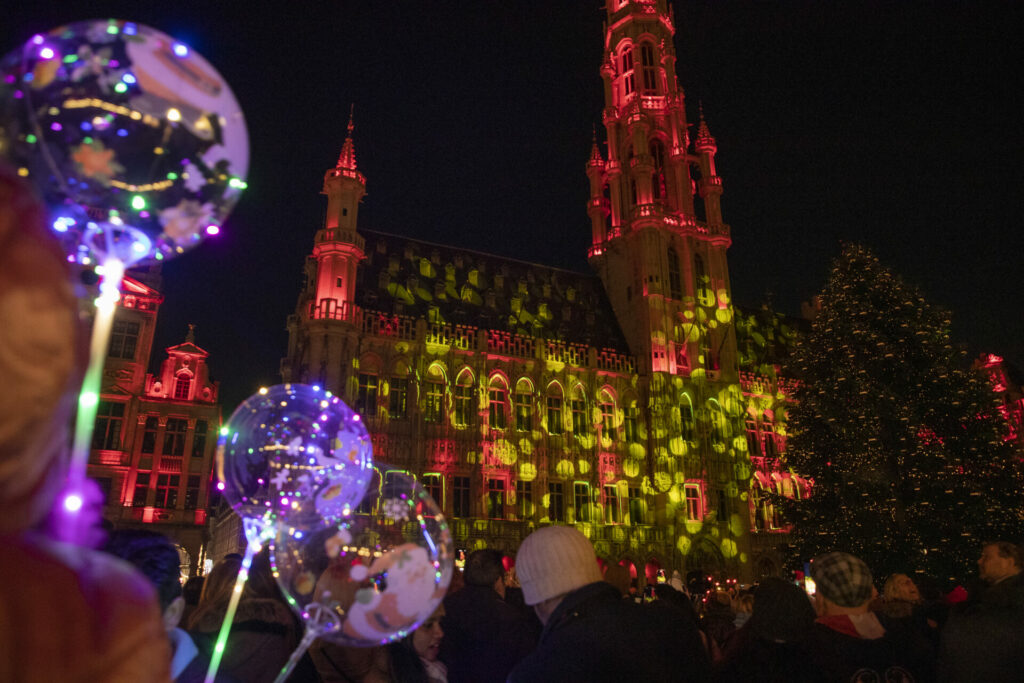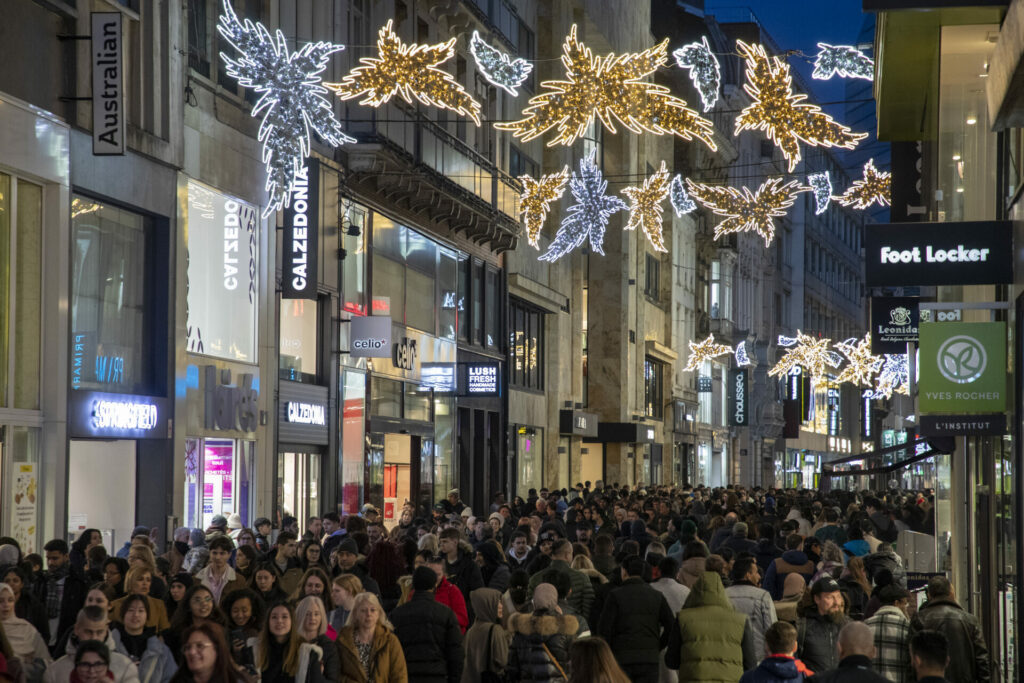Christmas lights are not staying on as long as other years this winter due to the energy crisis. In Brussels, the lights are staying on four hours less per day by lighting at 5 p.m. rather than 1 p.m., and in Liège it is three hours less, by illuminating the decorations only from 4 p.m. to midnight.
"This allows a saving of 25%," according to the Brussels by Lights press kit. But 25% of what? "Since all Christmas decorations are LED, it is a rather symbolic, visible and easy measure but the biggest energy expenditure of municipalities is elsewhere," according to Frederic John, co-founder of D-carbonize, a start-up that measures the carbon footprint of companies and gives them ways to reduce them.
"If we look at the Belgian energy mix, we know that 1 kWh of electricity from the grid equals approximately 200 g of CO2 / KWh,” John told RTBF. “To put it in perspective, this is one-third less than in 1990. For the city of Liège, if we count about 30,000 kWh/year for Christmas lights, we obtain an environmental impact of six tons of CO2 (30,000 kWh x 200 gCO2). That's the carbon footprint of a city car after 30,000 km."

Credit: Belga / Nicolas Maeterlinck
For the carbon footprint expert, it would be better to focus efforts elsewhere, on measures that may be less visible to the public. "To put things into perspective, the city of Liège operates 440 vehicles. To 'offset' the environmental impact of the Christmas lights in Liège, the City could replace one car, 0.3% of the total fleet, with a cargo bike or, for example, electrify two vehicles." This example for Liège could be applicable to many other municipalities, he said.
Related News
- Will the energy crisis steal Christmas?
- Brussels 'Winter Wonders' named best Christmas market in the world
- A joyful guide to 2022 Brussels Christmas Market
In Brussels, for example, Fabian Maingain, the Brussels Councillor for Economic Affairs, says he is well aware of the limited impact of reducing the time Christmas lights are on. "In the context of the current energy crisis, it is important to do one's part," his office said in a statement reported by RTBF, pointing to the savings of 25% made by restricting the hours of lighting. "This has made it possible to illuminate other streets."
Even if the message is to reduce lighting, the choice of elected officials is still to keep Christmas decorations in cities to attract visitors and reap the financial rewards of Christmas tourism.
"Given the return on investment, there is still a real gain," says the alderman’s office stated. "And then, in the ambient gloom, it's a pleasure to walk in illuminated streets which provides a positive psychological impact on all our citizens.”

